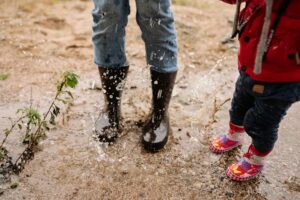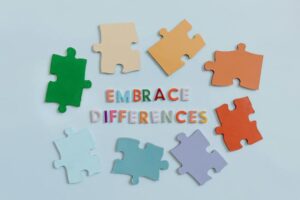
How to know your child is ready to start school
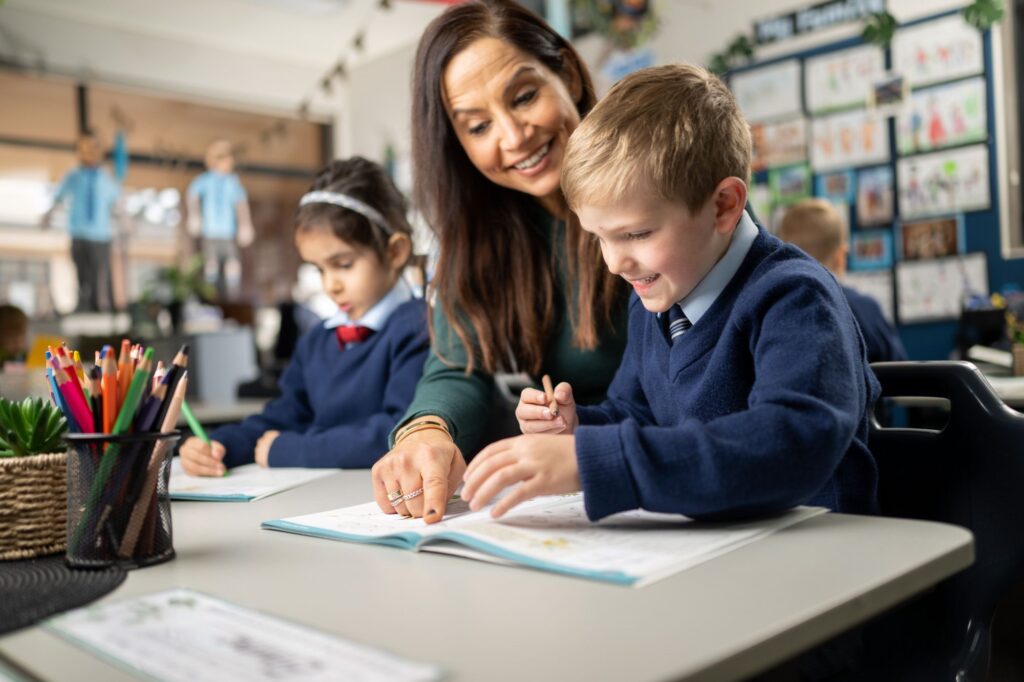
Starting school is a significant milestone for both parents and children. Kindergarten marks the beginning of a new and exciting academic journey, but with any major change there are always challenges to overcome. We asked The Illawarra Grammar School to share their expertise and advice for tips on how to give your child the best start possible for their first year at school.
When should my child start school NSW

How to know your child is ready to start school
One of the biggest challenges for parents of four year olds is knowing if their child is ready to start Kindergarten. It’s a big decision, but there are some simple steps any parent can take to assess school readiness.
The Illawarra Grammar School has helped thousands of students over the past 64 years to successfully make the transition into their next stage of schooling. As one of the Illawarra region’s leading Preparatory to Year 12 schools, they have extensive experience in understanding when a child is ready for school, and what students need to achieve ‘the strongest start in life’. These are a few of their expert tips for starting strong at school.
Transition to School programs with TIGS

How to know your child is ready to start school
Is your child socially confident?
It’s common for parents to think “my child can count so they’ll be academically fine in Kindergarten”, however the main indicator that your child is ready for school is their social confidence.
According to Head of Junior School, Ms Geneva Clayton, the transition to school “is strongly influenced by a child’s emotional and social development”, more than their academic ability or their age.
One of the best ways to prepare children for starting school is ensuring they know how to get along with others — whether it’s understanding how to take turns, or how to share.
These social skills will help them to form friendships and settle into the routines of the school day.
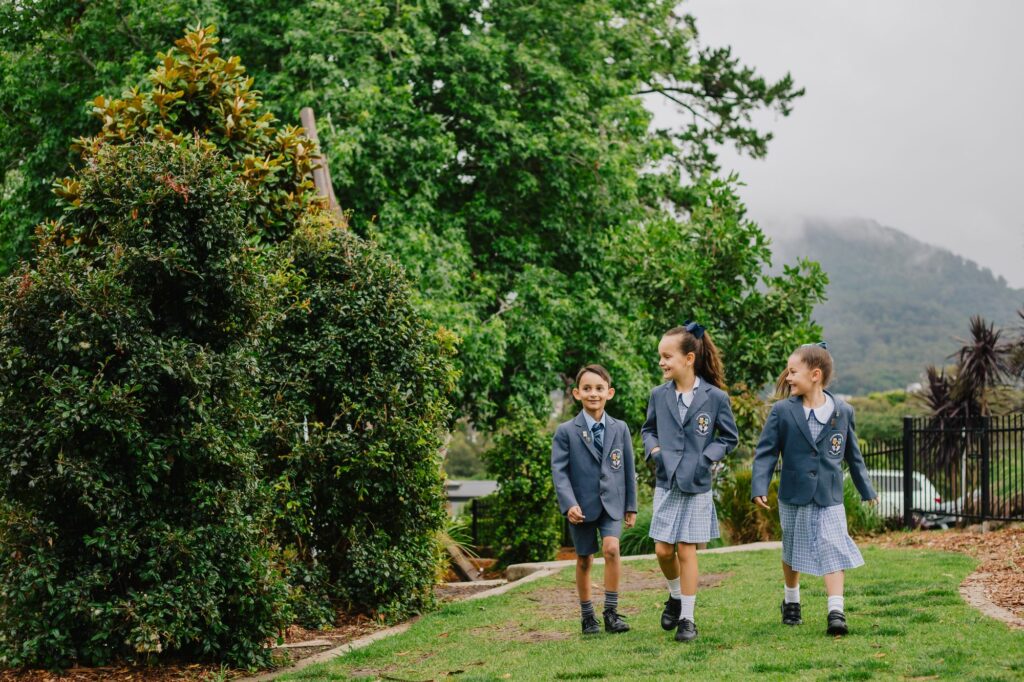
How to know your child is ready to start school
To ensure all students start in a safe and welcoming environment TIGS has a structured orientation and peer support program that brings students into campus the year before they commence to familiarise them with their new environment.
In the first weeks of Kindergarten the focus is on establishing relationships with teachers and class members, and creating a strong sense of belonging and an understanding of what it means to be a student.
Kindergarten students buddy with Year 5 mentors in a series of events like the ‘Teddy Bears Picnic’ and they learn about how to build and nurture friendships with classes from the URSTRONG programme which teaches young children how to navigate the complexities of friendship.
Best Kindergarten transition programs Illawarra

How to know your child is ready to start school
Can they act independently?
If your child is starting Kindergarten next year, parents can help to support their transition by introducing them to functional behaviours they’ll need to navigate their school days.
The little things such as knowing which hat belongs to them, or how to wash their hands after using the bathroom can make their first days at school less daunting.
“We find that the children who settle in quicker are the ones who are more independent in those areas,” says Ms Clayton.
Ability in functional skills reduces the anxiety of being in a new environment which allows children to start building relationships with teachers and classmates. Acting independently also helps foster a deeper sense of belonging to the school community and develops the critical thinking skills that are essential in their next stages of learning.
If your child is confident in navigating social interactions with other children and has the independence to ask when they need water or to use the bathroom, they may be ready to move into Kindergarten.
Prepare your child for school readiness NSW
Another big advantage for children in starting school is being able to spend time focusing on a task.
While the first few weeks of Kindergarten are spent settling in and building new relationships, students eventually transition into the more formal routines of the school day.
In daycare and at home children have the freedom to jump spontaneously from one place or task to another. In the classroom, they will move to specific learning tasks that will require their ability to engage with some independence and increasing concentration, often working with others in a group setting.
Giving your child interactive projects like helping you to prepare a meal, bake a cake, write a shopping list – activities with a real purpose assists in building these skills and develop the foundational skills to succeed in learning.
School readiness Programs Wollongong with TIGS
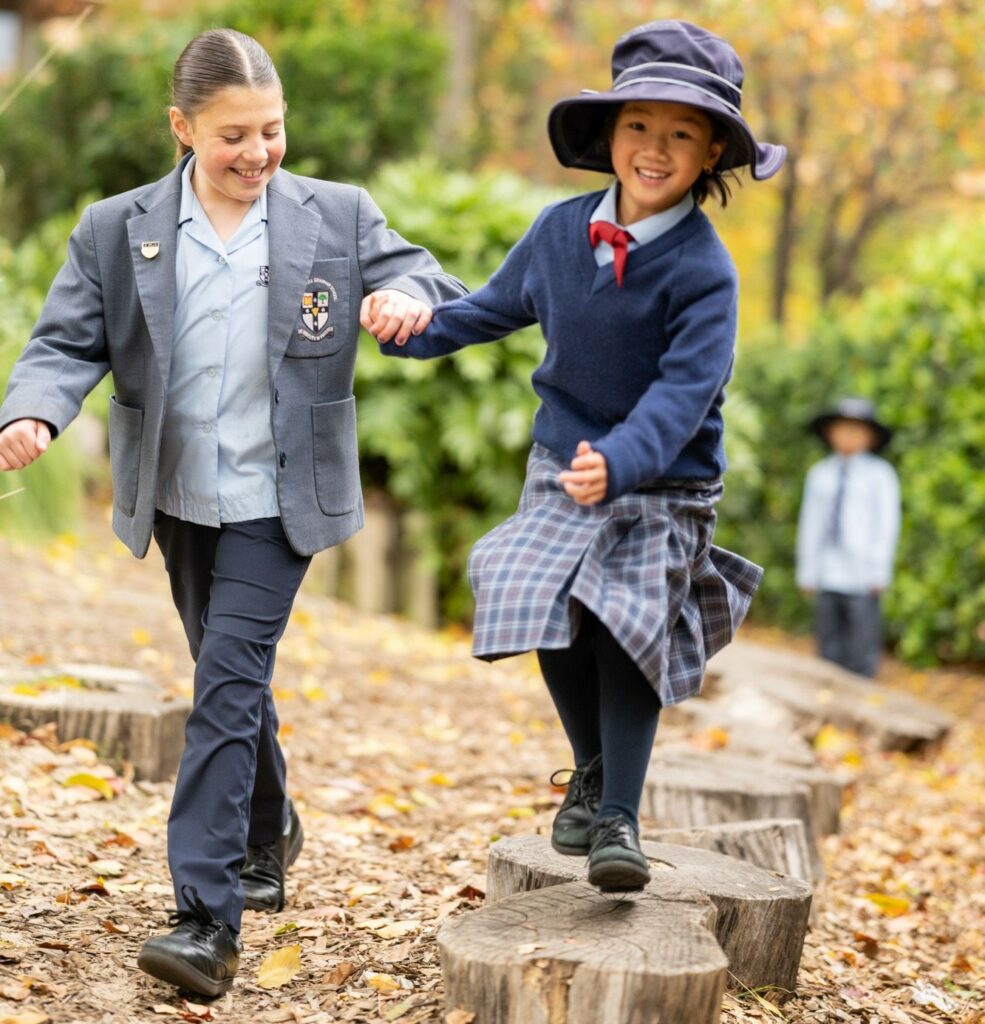
How to know your child is ready to start school
Can they recognise their own name in writing?
The NESA curriculum places an emphasis on building phonemic awareness, the awareness of how spoken language consists of different smaller components and the ability to identify and manipulate these. Phonics is the mapping of speech sounds (phonemes) to letters (or letter patterns such as graphemes), the relationship between letters and sounds. As students learn to read and spell, they develop their knowledge of the relationships between phonemes and graphemes in written language.
According to Ms Clayton students are not expected to know how to read as they enter Kindergarten but an understanding of some of the basic letter names and sounds and especially being able to recognise some words (like their name) will significantly improve their transition to the classroom learning environment.
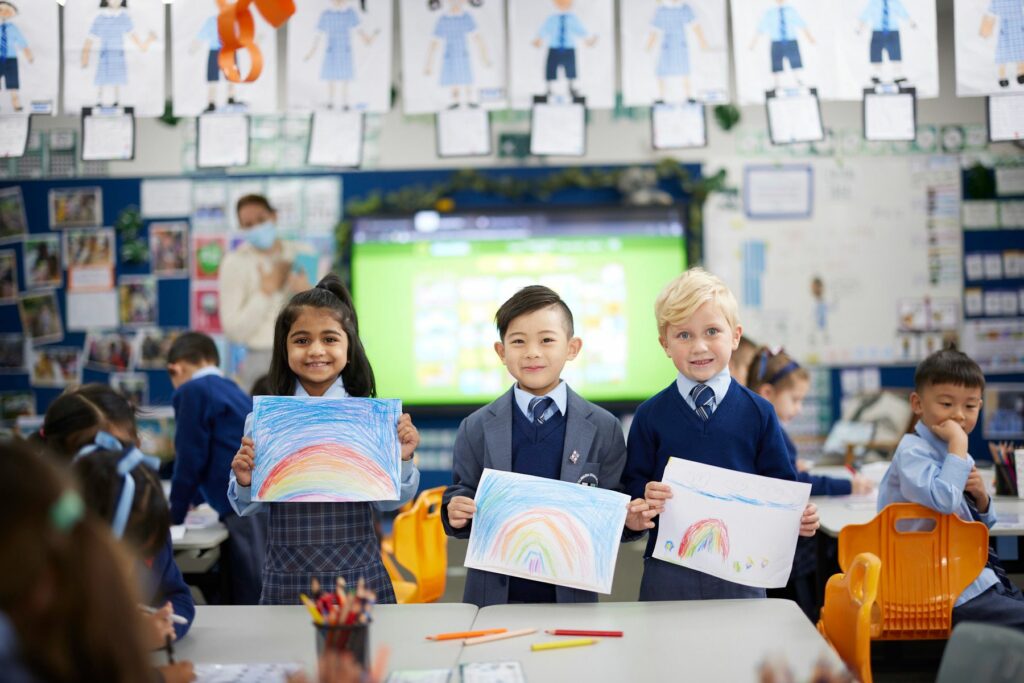
How to know your child is ready to start school
Spend time showing your child what their name looks like so they can recognise which hat, lunchbox or book belongs to them and practice writing out the letters in their name and practicing forming the letter shapes. It’s not essential for a Kindergarten student but being able to recognise their own name is a great advantage.
Number sense development is also very important, and parents are encouraged to play games to explore this. Making groups out of toys then using your finger to count individual objects, and learning the order of numbers by practicing counting is important.
It is equally important for parents to be confident that their chosen school will support their child’s needs. This trust is best established by getting involved with as many opportunities as possible and talking directly with the school’s leaders and educators. Attending Open Days, Information Sessions and taking school tours are the best ways for parents to understand how the school works and what daily life will look like for their child.
To find out more about how The Illawarra Grammar School supports and empowers young students in their transition to school call (02) 4220 0200 and arrange a tour or meeting with our expert staff.
Thankyou to The Illawarra Grammar School for sharing their expertise and for sponsoring this article.
Click and sign up for our Parents Newsletter here. Get all the local inspo!
You might also like:


